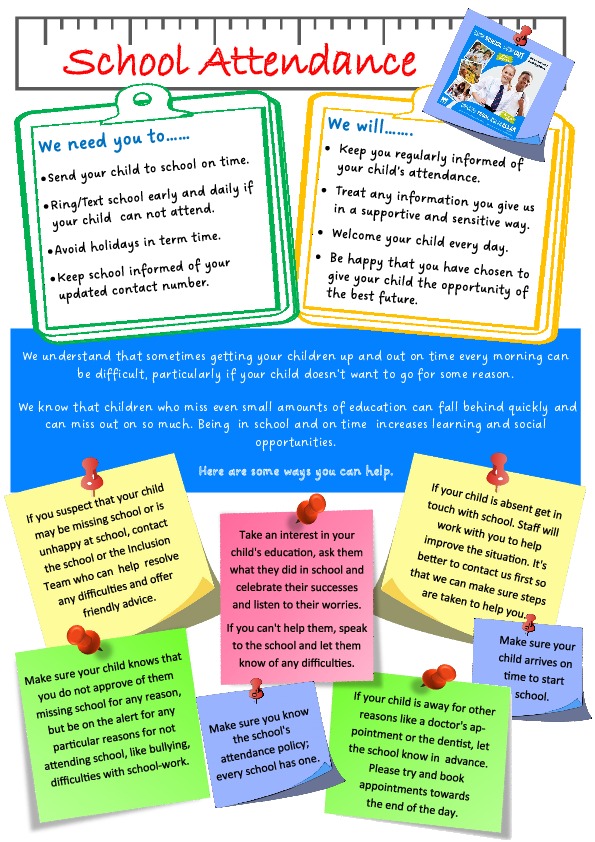- Home
- Information
- Attendance
Attendance
Attendance Matters
Attendance to school is imperative as there is a high correlation between excellent attendance and attainment. Students who miss school frequently can fall behind with their work and do less well in exams. Good attendance also shows potential employers that a young person is reliable.
Fixed Penalty Notices (see below)
| Days absent | Missed time | Attendance | |
|---|---|---|---|
|
0 days off school in a year |
0 lessons missed | 100% | Perfect attendance |
| 2 days off school in a year | 12 lessons missed | 99% | Excellent attendance |
| 5 days off school in a year | 30 lessons missed | 97.5% | Good attendance |
| 10 days off school in a year | 60 lessons missed | 95% | Slightly below average attendance |
| 14 days off school in a year (2 weeks) |
84 lessons missed | 93% | Poor attendance |
| 20 days off school in a year (4 weeks) |
120 lessons missed | 89% | Very poor attendance |
| 30 days off school in a year (6 weeks) |
180 lessons missed | 85% | Very poor attendance |
| 40 days off school in a year (8 weeks) |
240 lessons missed | 80% | Very poor attendance |
1 or 2 days absent a week doesn’t seem much but this is how it equates:
| If your child misses | That equals | Which is.. | And over 13 years of schooling that is.. |
|---|---|---|---|
| 1 day a fortnight | 20 days per year | 4 weeks per year | Nearly 1½ years |
| 1 days a week | 40 days per year | 8 weeks per year | Nearly 2½ years |
Punctuality Matters
Missed minutes = missed learning = missed opportunities!
Being frequently late for school means lost learning:
| If your child misses | That equals | Which is.. |
And over 13 years of |
|---|---|---|---|
| 10 minutes per day | 50 minutes per week | Nearly 1½ weeks per year | Nearly ½ year |
| 20 minutes per day | 1 hour 40 minutes per week | Nearly 2½ weeks per year | Nearly 1 year |
| 30 minutes per day | Half a day per week | 4 weeks per year | Nearly 1½ years |
| 1 hour per day | 1 day per week | 8 weeks per year | Nearly 2½ years |
Sanctions are in place for repeated lateness and are communicated to parents/carers


